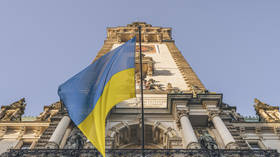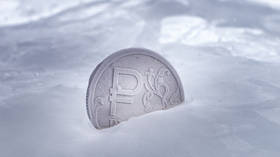EU divided on using seized Russian assets to fund Ukraine – Politico

Ambassadors from several EU countries have rejected a proposal by Spain to use revenue generated from frozen Russian assets to fund the Ukrainian economy, Politico has reported, citing anonymous officials.
Spain is currently at the helm of the EU’s rotating presidency. It reportedly suggested during a meeting of EU envoys on Tuesday that profits from frozen Russian central bank reserves could generate up to $18 billion for Kiev by 2027.
However, according to officials who spoke with Politico, some bloc members rejected the proposal, arguing it did not satisfy the EU’s priority of supporting Ukraine because it could possibly take years to provide the money. According to the outlet, there was also confusion over how exactly Spain had arrived at its estimates.
The report comes after Bloomberg claimed last week that the EU was considering a proposal to tax profits from frozen Russian assets in order to help rebuild Ukraine. The plan, however, has reportedly been met with pushback from several EU members, which have argued it could jeopardize the credibility of the Western financial system.
An estimated $300 billion of Russian central bank assets have been frozen worldwide since Moscow launched its military campaign against Ukraine. Of that amount, $100 billion is being held in the US, while the other $200 billion is frozen in the EU. So far, these funds have reportedly generated nearly $4 billion in profits.
Russia has repeatedly criticized the freezing of its assets as “illegal” under international law, describing it as blatant theft.
The speaker of Russia’s State Duma, Vyacheslav Volodin, insisted last month that the move has not had a significant effect on the Russian economy. President Vladimir Putin has also suggested that Russia has already earned twice the amount of the assets frozen by the West.
Volodin has stated that Moscow has the moral and legal right to seize the assets of G7 countries, which are reportedly worth significantly more than the frozen Russian assets.













